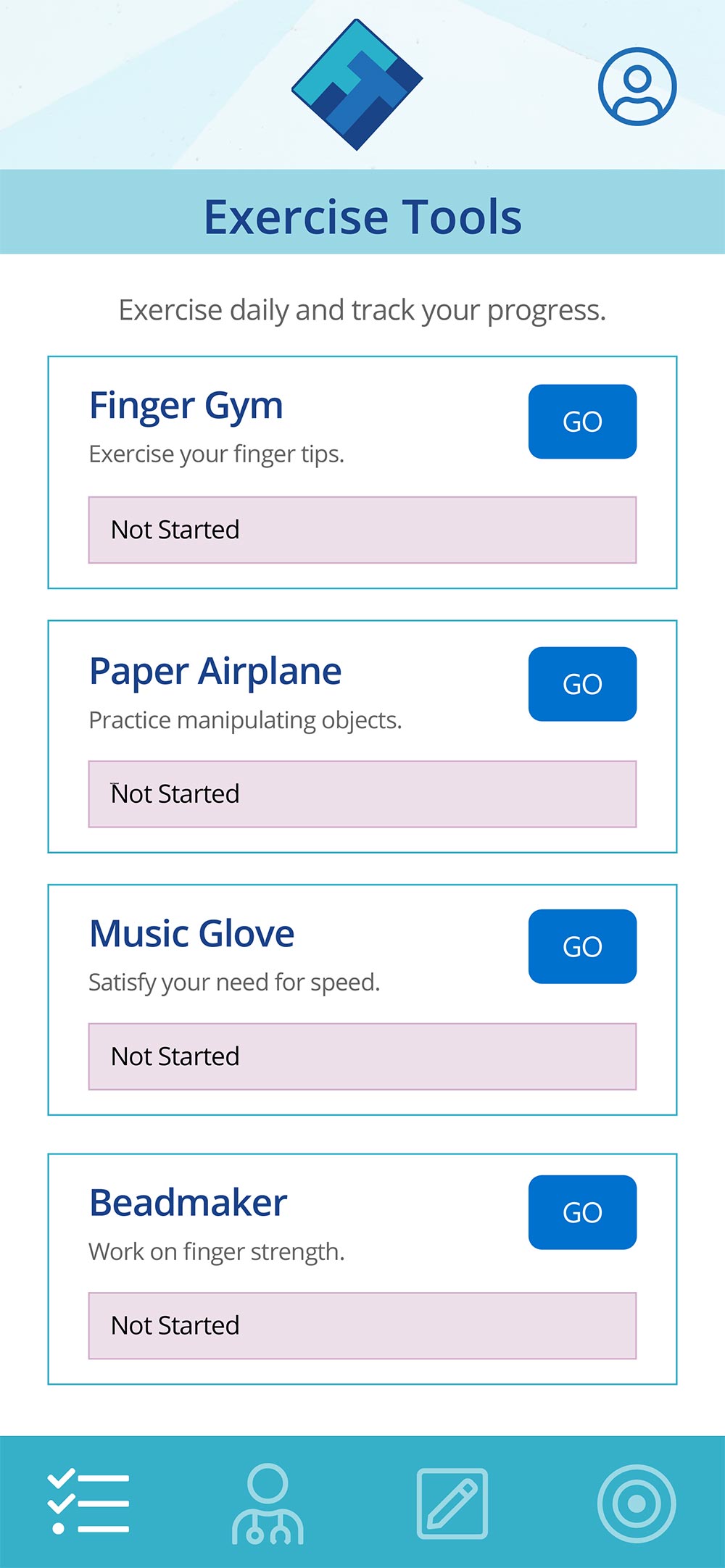Helping People with Hand Disabilities
Stay On Track
Hand disabilities create difficulties in a variety of ways: writing, using utensils and tools, using zippers and buttons, opening doors, making fingerprints, typing on a keyboard, picking up objects, opening jars and cans, brushing hair and teeth, bathing and showering, playing a musical instrument, and so on. People with hand disabilities will often work with an occupational therapist to build up strength and find other ways of performing tasks. Exercises are typically provided as paper worksheets or emailed as a video, which can contribute to high drop-off rates in patient adherence between appointments.
Problem: How can we use technology to better motivate patients struggling with hand disabilities to stay on track with their treatment?
Process: This project was designed to include a range of participants (including participant observers) in the research, design, and testing phases. We collaborated with participants to design an app prototype that will help people with various hand disabilities improve finger strength and mobility. Ultimately, our hope was to expand physical access for people with hand disabilities to daily experiences that are meaningful and fulfilling. This access will open doors to richer emotional and social experiences too.
Design Solution: Finger Toolbox is a mobile app that personalizes a set of exercises for users based on their unique needs. Using augmented reality via Metaverse, the app incentivizes users to practice at least 10 minutes a day to help them reclaim mobility and the ability to perform everyday tasks. As an optional feature, it also integrates treatment with the user’s occupational therapist or doctor.

